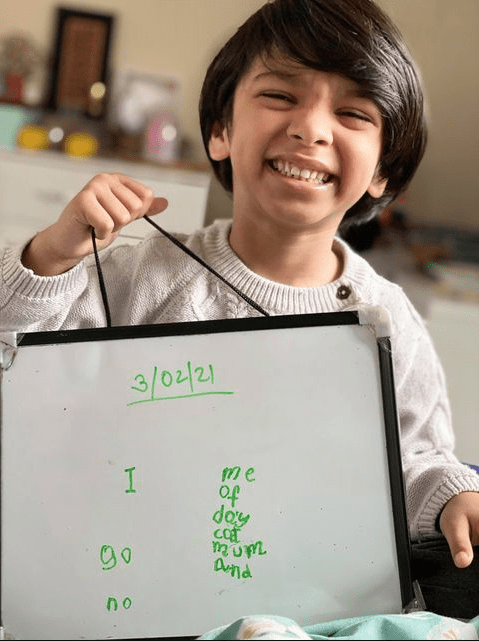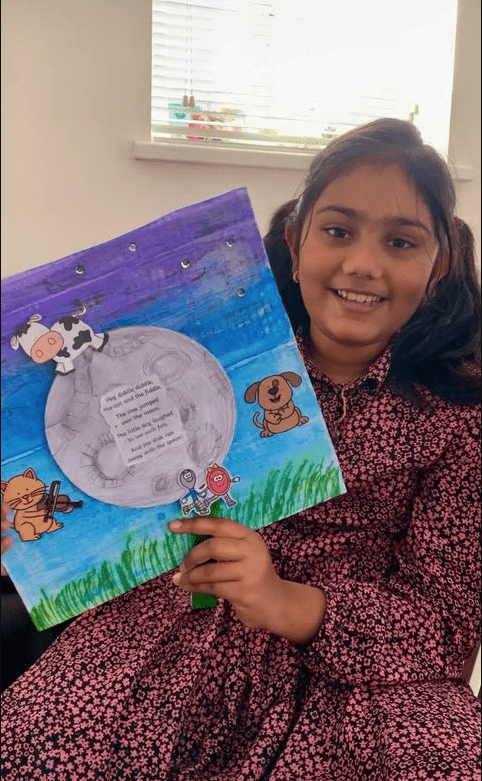The Science of Teaching Science
Having an effective understanding of science is incredibly important both for the individual and for our society. Children are entitled to know how the world works – without this knowledge their lives aren’t as rich. A good understanding of science will allow them as adults to make informed decisions on important matters, such as voting, or receiving a vaccination as has been seen recently. And it opens doors to numerous careers in a huge range of fields, not just the ‘traditional’ science professions.

Our approach to teaching science is different from some schools, as they will use an inquiry-based learning approach, which involves minimal guidance from the teacher and pupils designing their own experiments to check their own hypotheses. For example, this could take the form of asking the children to look at a bug and see what they can find out. However, an increasing number of studies show this is ineffective as, without having the right knowledge in place, children won’t know the questions they need to ask to get the most out of the approach.
To teach science effectively we, and all Paradigm schools, use a ‘knowledge-first’ system instead, which focuses on teaching children the scientific knowledge before anything else. Each lesson starts with a Do Now task to recap on prior knowledge and fill any gaps, then the teacher breaks problems into manageable parts and shows the solution to each, before the children practice using similar problems. By doing this, the children then have the foundation they need to be able to do the inquiry-based learning effectively. It also helps the children develop essential skills such as problem solving, understanding scientific texts or extrapolating accurate conclusions from results.
Another way we improve science outcomes is to meet regularly with teachers from the other schools in Paradigm Trust to share ideas. A large proportion of time is spent discussing ways in which children can be better prepared for the move from primary to secondary school, and how to make science effective from Nursery to Year 9. We have found by doing this there is now less disruption when pupils move from Year 6 to Year 7 and their learning experience is far smoother. Much of this work is led by Ben Rogers who is on the Education Committee at the Institute of Physics, and on the editing panel for the Association of Science Education journal. He is also part of the Ofsted Science advisory group, with a particular focus on primary schools.
Since we have been working this way it is noticeable that children are achieving better results and becoming more engaged in the subject. Lessons aren’t any less fun and interactive in a knowledge-first approach, we just ensure they are as effective as possible. For example, during lockdown we have given our KS1 children seeds to plant at home, and also asked them to see what plants, flowers and trees they can recognise as part of their Plants topic. When children get to Year 4 we teach them how to use a telescope, and Years 5 and 6 travel to the Centre of the Cell to learn more about the human body. During Science Week we will start our sunflower competition with the children competing to grow the tallest flower, and – guidelines permitting – this summer we will have a wildlife workshop, giving the children a chance to hold and touch wild animals, so they can learn more about the natural world.
Learning Through Lockdown

Despite the current challenges around the majority of our pupils learning from home, we have started the term on a high by ensuring children both at home and in school experience the same quality-first teaching and learning they would get in the classroom.
This is a result of the extensive planning and preparation we had done before the start of the year. We took the findings and insights we gained during the first period of lockdown last spring and summer, and with other Paradigm Trust schools built a robust plan of action we could apply should we need to close and engage in remote learning again.
So when, with barely twelve hours’ notice, the official notification that schools would be closed to all children (apart from vulnerable and key worker children) was received, we were able to move swiftly to remote learning with a minimum of disruption.
One of the major challenges during the first lockdown was the digital divide, with many families unable to access the online resources available due to a lack of appropriate devices and/or a reliable internet connection with sufficient data allowance. To overcome this challenge we have issued school laptops to any children who are learning from home and don’t have access to technology; so far over 450 Chromebooks have been loaned to parents/carers. Where families don’t have access to WiFi, we’ve purchased dongles and data for them. We’re also providing pupils with non-digital resources, such as glue, paint and materials for Art.

It is very important to us that all our children continue to get the support they need during this time of remote learning, so we have weekly personal, social, emotional, health (PSHE) lessons and assemblies for the whole school and individual classes. We make daily and weekly calls to vulnerable families, and our learning mentors continue to have their daily sessions with pupils, supporting them with their progress.
Our SEN provision is individualised to the needs of our pupils and we are running interventions virtually wherever possible. We ensure learning is differentiated to suit each child, and have support staff in the lessons to provide additional help for the pupils. We are also offering hard copy packs of the learning and practical resources to support the online curriculum.
Lockdown is a challenge, but one we are meeting head-on. It is an opportunity to adapt and improve our teaching and learning, both in the classroom and remotely online. As we would do in normal circumstances we are seeking the most effective ways to teach, testing different innovations and then sharing those that have been proven to be effective with the rest of the school and the entire Trust. It is our goal to always deliver an effective, challenging and interesting remote learning experience for our pupils, so they can all achieve their best.
How a shared pedagogy improves our pupils’ prospects.

Pedagogy may not be a word which is used in everyday language, but in simple terms it is the method and practice of teaching. Having a well-thought-out pedagogy makes our teaching effective and efficient.
With children only having a finite number of hours in school, the time we have to educate them is limited. This is why it is absolutely crucial to optimise those hours, using every second as efficiently as possible. If we are doing it correctly then at the end of a child’s school career s/he will be well prepared to flourish and lead a positive, fulfilling life.
As part of Paradigm, Culloden Primary Academy shares a pedagogy with the other schools in the Trust. This comes from two evidence-based works – the first is Teach Like a Champion, a collection of techniques which combine to deliver incredibly effective learning to the children. Over the last three years we have added Rosenshine’s Principles of Instruction, which establishes ten different strategies for teaching and assessing. The two works complement each other, providing a well-rounded base on which to build our pedagogy.
By using the same pedagogy in every classroom at Culloden Primary we ensure there is consistency in the way we teach, in the way we behave and in the way we apply our rules, from Early Years through to Year Six. This benefits both pupils and staff as children always know what to expect, whatever lesson they are in, and respond well to this.
However, we also understand every class and every child is different, so our pedagogy is designed to be flexible, giving our teachers the tools for each individual situation so they can adapt the strategies to fit the needs of their pupils and subjects, while still meeting the underlying rationale.
Having the same pedagogy across the school allows us to improve our teaching and curriculum effectively – a single innovation which proves to be successful can be quickly and easily applied to all classes. And as every Paradigm school has the same pedagogy, improvements from Culloden are shared across the Trust, and we benefit from every improvement made at the other academies.
As you will know, Culloden is effective above national standards across all key stages and has been for a number of years – this is in large part due to our pedagogy. It enables our pupils to become confident learners and prepares them to lead fulfilling lives, playing an active, positive and productive role in our democratic society.

